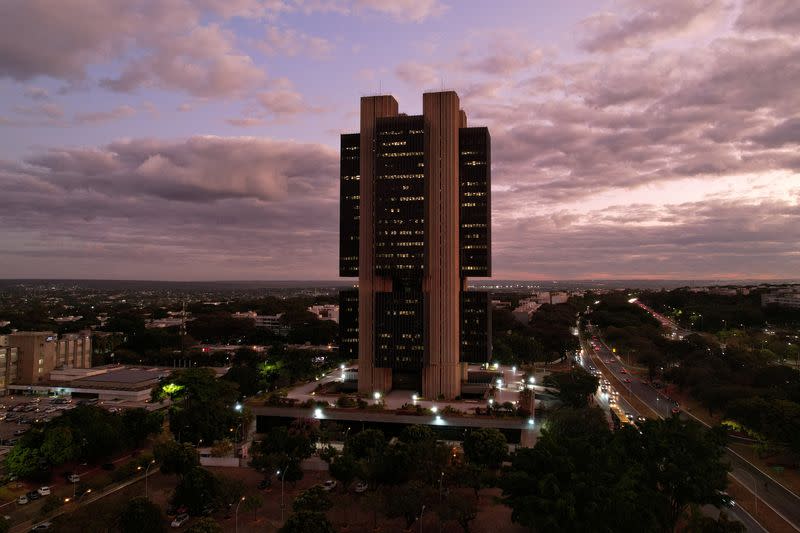Galipolo, picked to run Brazil's central bank, is heterodox economist

By Marcela Ayres
BRASILIA (Reuters) - Gabriel Galipolo, picked to be the next head of Brazil's central bank, is a 42-year-old economist who has not always expressed mainstream orthodox economic views.
His nomination by President Luiz Inacio Lula da Silva, confirmed on Wednesday by Finance Minister Fernando Haddad, was widely anticipated. If confirmed by the Senate, he will take over when Roberto Campos Neto's term ends in December.
Galipolo is currently the bank's director of monetary policy and was previously the second-in-command at the Finance Ministry.
His arrival at the central bank in July last year, appointed by Lula, sparked skepticism among many in the market, who worried about what they said was a lack of technical expertise, as well as his heterodox opinions on topics such as the need for state intervention to prioritize social needs and the suggestion that the central bank could act across the entire yield curve.
Since then, however, economists have warmed to him, and he is now seen by many as the best option to succeed Campos Neto, not least because of his rapport with Lula.
Lula has called Galipolo a "golden boy," saying he is "extremely competent" and has "unparalleled honesty."
For the last two years, Lula has regularly voiced frustration about working with Campos Neto and complained about high interest rates. The benchmark rate is currently at 10.5%.
But recently Lula appears to have softened his stance, saying of policymakers earlier this month, "If they need to hike interest rates, then they need to hike interest rates."
That change in tone coincided with statements by Galipolo in which he emphasized that a rate hike was on the table for September's monetary policy meeting amid continued inflation risks.
The comments provided some relief to investors who had been worried that once Lula had most of his appointees on the monetary policy committee, from next year, the central bank would be more lenient on inflation.
One market player, speaking anonymously due to the subject's sensitivity, said the comments indicated Galipolo had shown "persuasive ability" with the president.
A second source said Galipolo was "evolving rapidly" within the central bank and appeared to have aligned himself with the institution's essentially technical stance.
Galipolo was introduced to Lula in 2021 by Luiz Gonzaga Belluzzo, a Lula adviser and economics professor at Unicamp, a Sao Paulo university known for heterodox economics.
In one of three books Galipolo and Belluzzo co-authored, they criticized the ease with which multinational companies engage in interest rate and currency arbitrage, with subsidiaries borrowing at low interest rates in their home countries and profiting from leveraged investments in Brazilian interest rates.
However, as director of monetary policy and responsible for the crucial foreign exchange desk, Galipolo has not implemented any changes to the central bank's exchange rate policy, refraining from intervening in the market amid a recent sharp weakening of the Brazilian real, which has lost more than 12% against the U.S. dollar this year.
Galipolo has a master's degree in political economy from the Pontifical Catholic University of Sao Paulo.
He previously served as an economic adviser to the Sao Paulo state government and CEO of Banco Fator. He also founded a consultancy on public-private partnerships.
At the Finance Ministry, he earned goodwill in Congress as a good listener and negotiator, helping Haddad secure important victories, including the approval of a new framework for public accounts.
"He's a good choice, he's already been vetted here, everything's fine, people liked him," said Senator Vanderlan Cardoso, chair of the Senate's Economic Affairs Committee, which must confirm his nomination before it is put to the full Senate.
(Reporting by Marcela Ayres, Editing by Rosalba O'Brien)